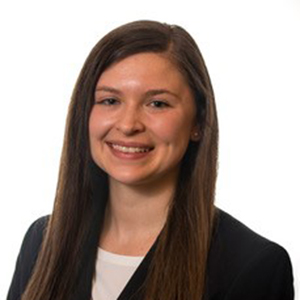Setting Your "New Year's Resolutions" For The New Academic Year

July 1. The turnover of the medical calendar complete with new faces, new roles and an opportunity to set new goals. I like to think of July 1 as a time to set my "New Year's Resolutions" for my career and revisit old goals that may have fallen by the wayside throughout the last year. With another year of knowledge and experience under your belt, this is the perfect time to set new expectations for the year ahead.
Like any New Year's Resolution, goals for career advancement should be thought through, digestible and realistic. We all know the lofty goals made each calendar year quickly fizzle by Valentine's Day. Therefore, I like to focus my goals on four pillars that I can revisit each quarter to see what progress I have made and what adjustments I need to make. The four pillars are: education, research, mentorship and career advancement.
Education
We all want to learn as much cardiology knowledge as possible, but it is important to have an action plan on how to obtain this knowledge. While learning on the job is essential and provides a wealth of experience and examples to recall, often we must dig further into the guidelines to learn diagnostic and therapeutic specifics in greater detail. Goals in this area may look like small steps in covering larger educational topics, such as completing five daily questions on an ACCSAP topic that relates to your current rotation. Regarding some rotations such as consults, CCU or nights, this may need to be modified to choosing one topic that relates to a patient you saw that week and reading a quick summary. Behind on your schedule? It happens. Brush it off for the next quarter and reset the clock.
Research
Research can be difficult to fit into the busy schedule of a cardiology fellow, but having a set goal in mind each quarter can help one accomplish enough to guarantee that poster at the next ACC conference. Sometimes this is just keeping a quarterly meeting with your principal investigator to ensure that you are staying on the right track. Conference deadlines can also help set a timeline for writing up abstracts or manuscripts. For some, setting goals under this pillar could entail what you want to get out of the upcoming year that will help set you up for a future career as a researcher. Set aside small goals to get yourself there that you can revisit throughout the year.
Mentorship
We have all heard that mentorship is a two-way street. Whether you are meeting someone new or have had a mentor walk you through difficult decisions, keep in touch to let them know how your year is unfolding. Taking your career in a new direction after that last exciting rotation? Have a question about how they achieved a work-life balance during their fellowship? Reach out and meet up for coffee. This is another opportunity to set the calendar for that quarterly meeting to make sure that they are abreast on any changes or challenges that may have occurred. Such meetings will often bring new perspective and rekindle that excitement you felt at the start of the year when making your plans and goals.
Career Advancement
Career advancement may look different for each individual and the type of career that you want to pursue or your particular area of interest. For some, this may include looking for ways to get involved in larger cardiology societies such as the ACC. Look for ways to volunteer or join committees that intrigue you. For others, this may include community outreach. Interested in prevention? Look for opportunities to get involved at youth outreach programs or community health fairs. Interested in sports cardiology? See how you can get involved with athlete screening at a local university. Set aside time for at least one outing per year and get to know the community you serve.
A new medical year is the perfect opportunity to reclaim the excitement we all felt when applying for cardiology fellowship and dreaming up what our future career looked like. Remember to keep that excitement alive even when you are on your fourth difficult rotation in a row by checking in on your goals throughout the year and reaching out to close mentors who can remind you of what lies ahead.

This article was authored by Heather Wheat, MD, a FIT at University of Michigan.
This content was developed independently from the content developed for ACC.org. This content was not reviewed by the American College of Cardiology (ACC) for medical accuracy and the content is provided on an "as is" basis. Inclusion on ACC.org does not constitute a guarantee or endorsement by the ACC and ACC makes no warranty that the content is accurate, complete or error-free. The content is not a substitute for personalized medical advice and is not intended to be used as the sole basis for making individualized medical or health-related decisions. Statements or opinions expressed in this content reflect the views of the authors and do not reflect the official policy of ACC.

